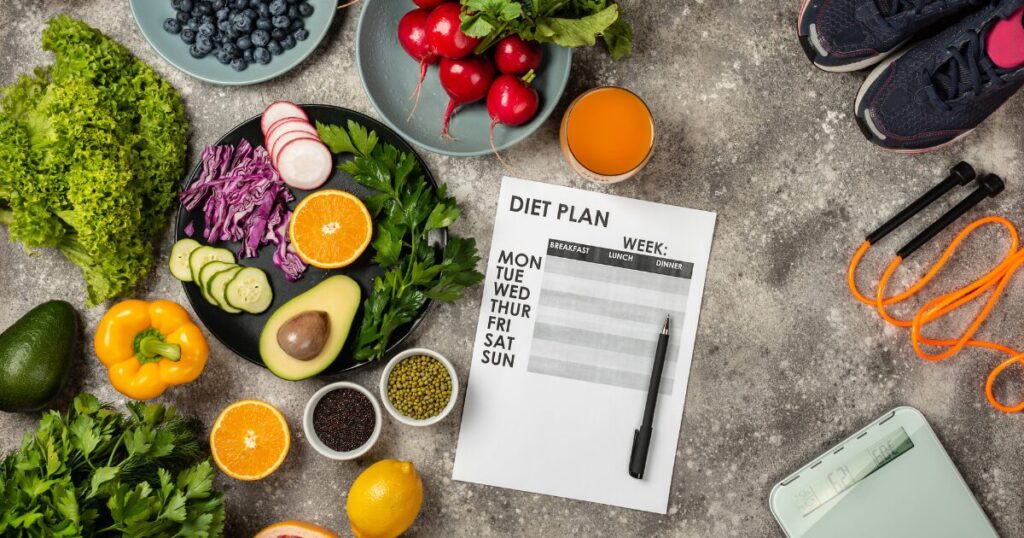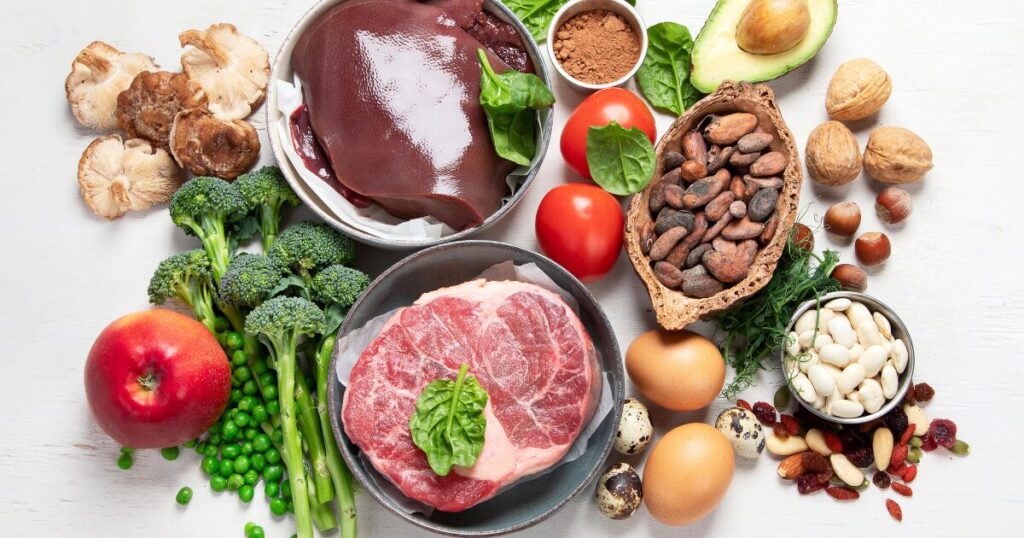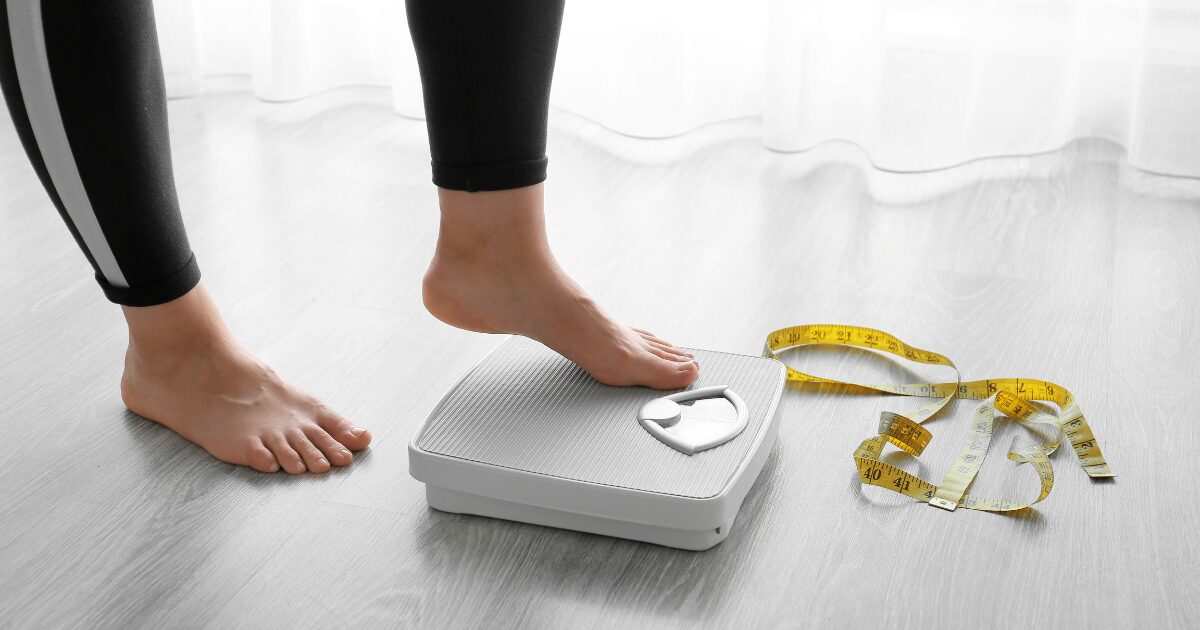Are you planning to go with bariatric surgery? Before the operation, you need a proper diet plan to get used to dietary changes and lifestyle adjustments. Your doctor may ask for a 6 month diet before weight loss surgery.
This diet helps prepare your body and mind for the surgery. It will also help you to lose weight. Combining bariatric surgery and your diet plan will give you more noticeable results. It will help you lose weight and keep you healthy and fit. Let’s sort out why you need a 6 month diet before weight loss surgery and how it will work.

What is a 6 Month Diet Before Weight Loss Surgery?
Weight loss or bariatric or metabolic surgery is a common way to reduce weight. In this surgery, the doctor separates or removes some parts to make your stomach smaller. After this surgery, you will consume less food and feel fulfilled after consuming a small amount of food.
But you only don’t need surgery to maintain your weight; but also follow a proper diet plan befire and after bariatric surgery.
Doctors usually ask you for a 6 month diet before weight loss as it can make you use too much of eating carefully and less. Then, after the bariatric, you can follow the plan quickly.
The other most important reason behind the 6-month diet plan is to take just healthy foods and avoid unhealthy diets to prepare your body for surgery.
Why is a 6 Month Diet Crucial?
Now, a question may arise in your mind: If I’m going to beat obesity and lose weight by weight loss surgery, then why do I need to follow a diet? So, let me tell you how this 6-month diet before weight loss surgery can be a game changer for you.
Building Sustainable Habits
As discussed above, one of the main advantages of the 6 month pre-surgery diet is the ability to build healthy eating habits. These 6 months will help you make eating habits that will last a lifetime. Eating nutritious food, controlling potions and avoiding unhealthy food will set a strong foundation for bariatric. A study reveals that individuals who follow the 6 month pre-surgery diet will get more effective results and can maintain it for a long time based on their eating habits.
Planned Nutrition Intake
When you get into a diet plan for an extended period, like 6 months, you can understand the stuff better than what is for your health and what you should avoid. You will know the nutritional profile of different diets well. It will help you understand the nutrients and their needs for your body, and you can adjust the quantity accordingly. This knowledge will help you choose the healthy and nutrient-rich food for a lifetime.
Weight Loss
One of the significant benefits of a pre-surgery diet is weight loss. In 6 months, you can lose a handsome amount of weight. Research on postoperative dietary adherence shows that a person who loses 5% weight before bariatric surgery reduces the 30-day mortality risk by 24%. However, losing 10% of his body weight reduces the 30-day mortality risk by 42%. So, it can be super beneficial for weight loss and bariatric surgery.

What Should I Eat Before 6 Months of Weight Loss Surgery?
Now, you may worry about what I have to eat exactly to lose weight and prepare myself for weight loss surgery. Here’s the list of diets you should add to your six-month diet before weight loss surgery.
Focus on Protein-Rich Foods
Protein helps your body to prepare for the surgery. It helps maintain muscle mass, keeps you feeling full, and aids in faster recovery. You can add proteins like chicken, turkey, fish, eggs, and low-fat dairy in every meal.
You can choose tofu, beans, and lentils if you are vegetarian. Protein shakes can also be a good supplement, but it’s best to consult a professional for more personal advice.
Take More Fruits and Vegetables
Fruit and vegetables are essential to add to your diet. They are rich in vitamins, and minerals vital for overall health. Leafy greens, berries, carrots, and broccoli are all excellent choices. However, you should be careful regarding portions, especially fruits, as fruits can be high in natural sugar.
Stay Hydrated and Avoid Liquid Calories
Hydration is the easiest but essential addition to your diet plan. Water should be your go-to beverage. Staying hydrated helps with digestion and overall body functioning. However, you need to avoid sugary drinks, alcohol, and excessive caffeine, as these can add unnecessary calories and dehydrate you.
Note: Your dietitian can help you by providing a diet plan that fits your current health and weight conditions. Here is the 6-month diet plan. However, it’s better to consult a health professional beforehand.
Month 1: Assess and Adjust Your Current Diet
First of all, you need to assess your current dieting plan. Which plan are you following now, your eating habits, and which food are you taking? Here is the step-by-step process of assessing and adjusting your diet in the first month:
- Take note of what you eat daily.
- Identify patterns like emotional eating or frequent snacking.
- Cut out processed foods and sugary snacks.
- Eat healthy foods like lean proteins, fruits, and vegetables instead.
- Gradually reduce your intake of fast food and sugary drinks.
- Start by reducing portion sizes slightly at each meal.
- Focus on eating at regular intervals, ideally every 3-4 hours.
- Avoid late-night snacking by setting a cut-off time for eating.
Month 2: Focus on Nutrient-Rich Foods
You need to add food that is rich in nutrients to your plan. These essential vitamins and minerals help you maintain overall health and fulfil your body’s needs.
- Take vegetables and fruits on regular basis. Aim for the different varieties to maximise your nutrient intake.
- You should also need to opt for lean proteins. Include chicken, fish, tofu, or beans to support muscle maintenance.
- Whole grains are essential to include in your daily diet. For lasting energy, opt for brown rice, quinoa, and oats.
- Limit snacks like chips, cookies, and sugary drinks to stabilise blood sugar and promote weight loss.

Month 3: High Protein Intake
Protein is an element that you should never skip in your diet. However, before undergoing weight loss surgery, you should pay special attention to it.
- Try to include some quantity of protein in every meal to support muscle maintenance and overall health.
- Take lean meats like chicken and turkey, fish, eggs, and low-fat dairy. For plant-based options, consider beans, tofu, lentils and quinoa.
- Try a grilled chicken salad, a veggie omelette, or a smoothie with protein powder. Protein shakes can also be convenient ways to boost your intake.
Month 4: Hydration and Cutting Out Liquid Calories
In month 4, you must pay special attention to hydration and skip all the unhealthy liquid drinks. Water helps remove toxins, supports digestion, and can even help control hunger. On the other hand, sugary drinks, alcohol, and excess caffeine can add unnecessary calories, slow your progress, and even cause dehydration.
- You should drink minimum 8 glass of water daily. Hydration keeps your body functioning well and aids in weight loss.
- Cut out sodas, sweetened teas, and alcoholic beverages. You should also limit the coffee and energy drinks to avoid extra sugar and calories.
- Carry a water bottle everywhere, flavour your water with fresh fruits or herbs, and opt for herbal teas and calorie-free alternatives.
Month 5: Practicing Mindful Eating
In the 5th month, you must be careful about what you eat. You have to assess carefully how your body is responding to that diet. It will help you to minimise stress-related eating.
- Take the time to eat each meal without distractions. Chew slowly, appreciate the flavours, and let your body naturally tell you when you’re satisfied.
- Before eating, ask yourself if you’re hungry, bored, or stressed. During meals, pause halfway to check in with your hunger levels.
- Sort out triggers that lead to emotional eating and look for healthier coping strategies like going for a walk or practising deep breathing.
Month 6: Preparing for the Post-Surgery Diet
When you get into month 6 of the pre-surgery diet, you must prepare for the changes. You must take smaller, more frequent meals and understand the dietary phases you’ll follow after surgery. This preparation will help your body adjust according to the diet you have to follow after surgery.
- Start eating 5-6 small meals daily to get your body used to the post-surgery routine. Focus on portion control and careful eating.
- Learn about the different stages you’ll go through after surgery, from liquids to pureed and solid foods.
What Foods to Avoid Before Bariatric Surgery?
You don’t need healthy foods, so avoid a diet that is not good for your health. Here’s the list of foods that you should avoid in any case before weight loss surgery:
Sugary Foods and Drinks: Sweets, sodas, and other sugary items can increase blood sugar and contribute to weight gain. These empty calories are not nutritional and can hinder your weight loss efforts.
Fried and Fatty Foods: Fried chicken, French fries, and other greasy foods are high in unhealthy fats. These foods can affect your digestion and add extra pounds. These are also difficult to break down, which can be problematic post-surgery.
White Bread and Refined Carbs: Foods like white bread, pasta, and pastries are refined carbohydrates that can cause blood sugar fluctuations. As a result, it will leave you feeling hungry soon after eating. You can take whole grains instead.
Alcohol: Alcohol is highly hamrful and affects your liver, which is already under stress from carrying extra weight. It’s best to cut out alcohol entirely before your surgery.
High-Sodium Foods: Processed snacks, canned soups, and fast food are often loaded with sodium. It can lead to high blood pressure. Reducing your salt intake is essential for a smoother surgery.
Carbonated Beverages: Sodas cause bloating and discomfort. The carbonation can stretch your stomach, making it harder to adjust to the smaller portions you’ll need post-surgery.
Caffeinated Drinks: Excess caffeine from coffee, energy drinks, or certain teas can dehydrate you and cause increased heart rate. So, you should skip it from your diet.

How to Prepare Myself for Bariatric Surgery?
There are some other practices that you can add to your routine to prepare yourself for bariatric surgery:
Follow a Pre-Surgery Diet: Your doctor will likely recommend a special diet to shrink your liver. Follow that diet plan strictly to make the process easier.
Start Exercising: Light activities like walking can help you build strength and improve your recovery. Do it for at least 30 minutes a day.
Quit Smoking: If you smoke, you should leave it immediately. It can increase the risk of complications during and after bariatric surgery.
Stay Hydrated: Drink a lot of of water throughout the day. Staying hydrated is a must to keep your body functioning well before surgery.
Stress Management: Stress can ruin your diet and weight loss efforts. So, try different techniques like exercise, walking, journaling, or meditation to minimise its effects on the surgery. A study by PubMed reveals that a person with stress is less likely to lose weight before weight loss surgery.
Post-op Diet After Bariatric Surgery
This pre-op surgery will help you to accept the sudden changes in your digestive system. In the immediate days after surgery, your diet will be liquid-based. It will allow the stomach to heal without being stretched.
You can start with clear liquids like broth, water, and sugar-free gelatin. Gradually, you’ll move on to protein shakes and other nutrient-dense liquids to ensure you’re getting enough nutrition.
After a few days, you’ll transition to pureed and soft foods. During this time, you should focus on high-protein, low-sugar options. Proteins are essential to add to your diet at this stage. However, avoid sugars to prevent complications like dumping syndrome.
Portion control is also essential to consider while eating. Your new stomach size will only hold a small amount of food, so it’s important to eat slowly. Overeating can lead to discomfort.
Final Thoughts
Bariatric surgery is the most popular way to lose weight if exercise and diet do not work for you. However, your doctor will recommend a 6 month diet before weight loss surgery to help you get used to healthy eating and lose some weight.
This 6 month diet can help you develop healthy eating habits, and you can gain more control over your eating habits. You can’t only get results with bariatric Surgery, but you also need to maintain a healthy diet throughout. So, this diet will help you maximise the results of your weight loss surgery and prepare yourself for weight loss surgery.
Are You Planning for Weight Loss Surgery?
Many of you might have planned for weight loss surgery or have already gone through it. Tell us about your pre-surgery diet plan and how you managed healthy eating for this extended period in the comment section, or contact us here to share your experience of staying consistent and sticking with your diet.
Frequently Asked Questions
What should I do 6 months before bariatric Surgery?
You should start by following a high-protein, low-carb diet to prepare your body and shrink your liver before bariatric Surgery. Do regular exercise to build strength and improve your overall health. Lastly, quit smoking and reduce alcohol consumption to minimise surgical risks.
What do you eat before weight loss surgery?
You should focus on a high-protein, low-carb diet to help reduce fat around your liver and build muscle. Include lean proteins like chicken, fish, tofu, and plenty of vegetables.
What is the 2-week pre-bariatric surgery diet?
The two-week pre-bariatric surgery diet is a high-protein, low-carb, low-calorie liquid diet that will help you shrink the liver and reduce surgical risks.
What is the 20 20 20 rule for bariatric patients?
The 20/20/20 rule for bariatric patients is a guideline to help with mindful eating after Surgery. It suggests taking 20 minutes to eat each meal, chewing each bite 20 times, and waiting 20 seconds between bites. This approach helps prevent overeating, aids digestion, and supports long-term weight loss success.
How do I prepare my body for bariatric Surgery?
Here are practices to prepare yourself for weight loss surgery:
- Follow a high-protein, low-carb diet to shrink your liver and improve surgery outcomes.
- Exercise regularly to build strength and enhance post-surgery recovery.
- Quit smoking and reduce alcohol intake to lower the risk of complications.
- Stay well-hydrated by drinking a lot of water daily.
- Learn about the Surgery and build a strong support system for your recovery.
What is the safest weight loss surgery?
Gastric sleeve surgery is the safest bariatric surgery. It involves removing a part of the digestive system (Stomach) to limit food intake and has a lower risk of complications than other weigh loss surgeries.
What foods can you not eat after bariatric Surgery?
You should avoid the following food after bariatric Surgery:
- Sugary snacks and desserts (e.g., cookies, cakes, candies)
- Fried foods (e.g., french fries, fried chicken)
- High-fat foods (e.g., fatty cuts of meat, creamy sauces)
- Carbonated beverages (e.g., soda, sparkling water)
- White bread and refined grains (e.g., white pasta, white rice)
- Alcohol (e.g., beer, wine, spirits)
- High-fiber vegetables (e.g., broccoli, cauliflower)
- Tough, fibrous meats (e.g., steak, pork chops)
- Sugary drinks (e.g., sweetened tea, energy drinks)
- Full-fat dairy products (e.g., whole milk, full-fat cheese)
How much weight can you lose on a pre-op bariatric diet?
On a pre-op bariatric diet, patients can typically lose 5-10% of their total body weight, depending on individual metabolic response. This weight loss helps reduce liver size and improve surgical outcomes, but results can vary from person to person.





